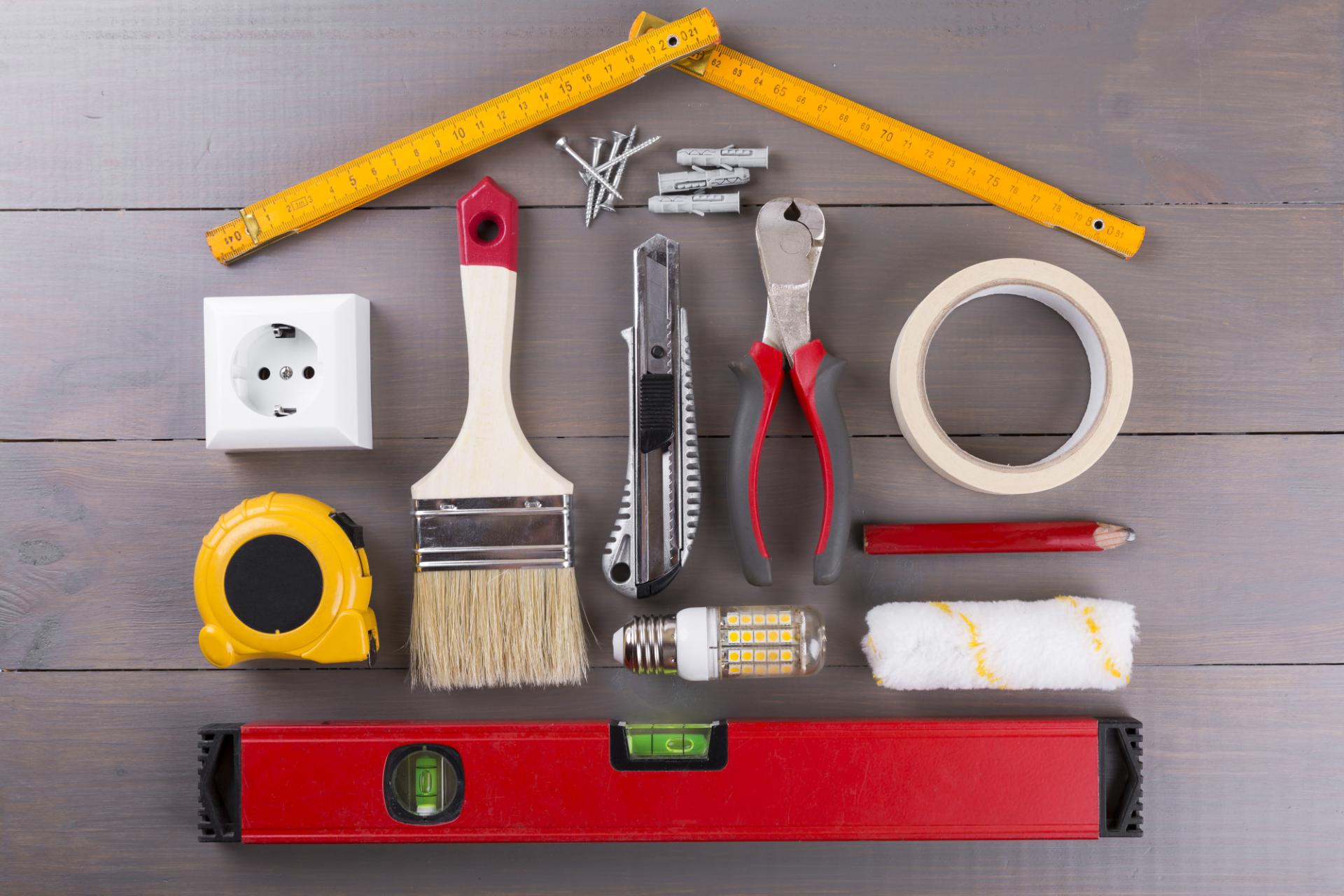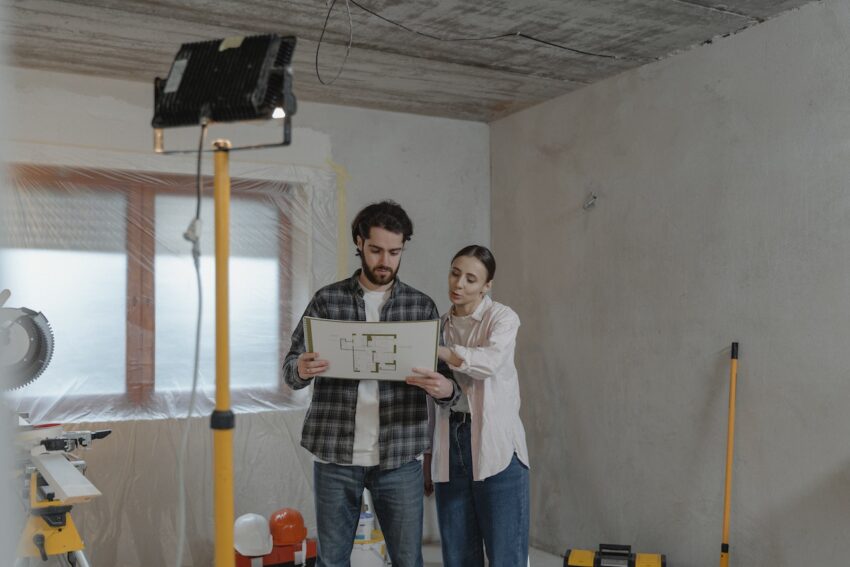Home improvement projects can be both exciting and overwhelming. From minor upgrades to major renovations, every project requires planning, preparation, and a bit of elbow grease. However, there are steps you can take to make the process smoother and less stressful.
The home improvement market has grown steadily in recent years, surpassing USD 762.9 billion in 2020. And according to industry reports, the market is projected to grow at a rate of 4.3% from 2021 to 2027. This trend is evident in Birmingham, AL, which is currently experiencing a surge in its housing market. A total sales and price growth rise of 13.7% places Birmingham in the top 25 housing markets for 2022, according to Realtor.com. It means that more and more homeowners in Birmingham are likely to invest in home improvement projects to increase the value of their properties.
Whether you’re updating your kitchen, adding a new room, or simply giving your home a fresh coat of paint, in this blog post, we will explore some of these steps and provide tips for making your home improvement projects a success.
Pack Up
By taking the time to pack up your items properly, you can ensure they are protected during the move or renovation and make unpacking much smoother.
By renting a storage unit during a home improvement project or move, you can free up valuable space in your home and reduce clutter. It can make it easier to complete the project and help you stay organized throughout the process. Furthermore, storing items you don’t need right away can reduce stress and create a more peaceful living environment.
For example, if you live in Birmingham, AL, there are currently 56 self-storage facilities and approximately 4,025 storage units available. These facilities provide a wide range of storage options to accommodate various needs and budgets, from small units for personal items to large units for business storage. Look for different storage options in the area like, Birmingham RV storage, to find the best fit for your needs.
Know Your End Goal
Before you start any home improvement project, you must know what you want to achieve. Consider the purpose of the project, the desired outcome, and how it fits into your overall vision for your home. By having a specific end goal in mind, you make informed decisions throughout the project. Additionally, knowing your end goal can help you stay focused and motivated during the home improvement process, as you can measure progress against your desired outcome.
Prioritize Your Projects
Evaluating which projects are most important and which ones can wait is essential. For example, if your roof is leaking, that should take priority over repainting your bedroom. By prioritizing your projects, you can create a timeline that works for you and focus your energy and resources on the most pressing needs first. It can help you avoid feeling overwhelmed and ensure you progress toward achieving your home improvement goals. You can also break down larger projects into smaller, manageable tasks to avoid feeling bogged down by the project’s scope and the temptation to rush through the work.
Set A Budget
Budgeting gives homeowners a clear idea of how much they can spend on the project and helps them prioritize their needs and wants. A well-defined budget can prevent overspending and keep the project on track, ensuring the desired outcome is achieved within the allocated resources. Additionally, setting a budget can help homeowners identify areas where they can save money by finding cost-effective alternatives or tackling some of the work themselves.
Get The Right Tools And Materials
Using the wrong tools or poor-quality materials can lead to frustration, wasted time, and even safety hazards. Having the necessary equipment and supplies can save time and frustration and ensure that the job is done correctly. For instance, if you plan on painting a room, you’ll need paintbrushes, rollers, drop cloths, painter’s tape, and paint. These items are necessary for the process to be more complex and messy. Investing in high-quality tools and materials can also provide better results and make the finished product look more professional.

Safety First
You may simplify and streamline the process by beginning your job with safety procedures. Before starting any home renovation project, ensure you have the right equipment and protective clothing, including gloves, glasses, and masks. Read all directions carefully, and adhere to all recommended safety recommendations.
Get Help When Needed
It’s essential to recognize your limitations and know when to call in the professionals, whether a licensed contractor or a knowledgeable friend. Trying to tackle a project beyond your skillset can lead to frustration, wasted time, and even safety hazards. Additionally, seeking advice and guidance from experts or online resources can provide valuable insights and shortcuts to help you complete your project more efficiently.
Obtain Permits
Permits ensure that your renovation work complies with local building codes and safety regulations, reducing the risk of accidents or property damage. Additionally, obtaining a permit may provide access to expert advice and resources to help you plan and execute your home improvement project more effectively. While the permit application process can sometimes be time-consuming and require some upfront costs, the benefits of obtaining a permit far outweigh the potential drawbacks.
Clean Up As You Go
It means putting tools away when you’re finished using them, wiping down surfaces when they get dirty, and disposing of waste as it accumulates. By keeping your work area clean and organized, you’ll not only be able to work more efficiently, but you’ll also be able to avoid accidents and injuries. Additionally, you’ll save time and energy by not having to spend hours cleaning up after the project is completed.
Protect Your Furniture
During any home renovation or improvement project, protecting your furniture from dust, debris, and potential damage is essential. Covering your furniture with drop cloths, plastic sheets, or furniture pads can prevent scratches, dents, and stains. Additionally, removing furniture from the room or covering it up can make the renovation process more manageable, giving you more space to work in and preventing accidents.
Conclusion
Home improvement projects can be an overwhelming task, but with the right approach, they can become more accessible and more manageable. By following the steps mentioned in this blog, homeowners can make their home improvement projects more successful and stress-free.

